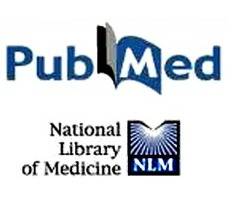Abstract
PURPOSE:
 This work determined the ability of hemp seed meal protein hydrolysate (HMH)-containing diets to attenuate elevated blood pressure (hypertension) development in spontaneously hypertensive rats (SHRs). Effects of diets on plasma levels of renin and angiotensin I-converting enzyme (ACE) in the SHRs were also determined.
This work determined the ability of hemp seed meal protein hydrolysate (HMH)-containing diets to attenuate elevated blood pressure (hypertension) development in spontaneously hypertensive rats (SHRs). Effects of diets on plasma levels of renin and angiotensin I-converting enzyme (ACE) in the SHRs were also determined.
METHODS:
Defatted hemp seed protein meal was hydrolyzed using simulated gastrointestinal tract digestion with pepsin followed by pancreatin, and the resulting HMH used as a source of antihypertensive peptides. The HMH was substituted for casein at 0.5 and 1.0% levels and fed to young growing rats for 8 weeks (preventive phase) or adult rats for 4 weeks (treatment phase).
RESULTS:
Feeding of young growing SHRs with HMH resulted in attenuation of the normal increases in systolic blood pressure (SBP) with an average value of ~120 mmHg when compared to the casein-only group of rats (control) with a maximum of 158 mm Hg (p < 0.05). Feeding adult rats (SBP ~145 mmHg) with same diets during a 4-week period led to significant (p < 0.05) reduction in SBP to ~119 mmHg in comparison with 150 mmHg for the control rats. Plasma ACE activity was significantly (p < 0.05) suppressed (0.047-0.059 U/mL) in HMH-fed rats when compared to control rats (0.123 U/mL). Plasma renin level was also decreased for HMH-fed rats (0.040-0.054 μg/mL) when compared to control rats that were fed only with casein (0.151 μg/mL).
CONCLUSIONS:
The results suggest that HMH with strong hypotensive effects in SHRs could be used as a therapeutic agent for both the prevention and treatment of hypertension.
- PMID: 24292743
- DOI: 10.1007/s00394-013-0625-4
- [Indexed for MEDLINE]
-
Publication type, MeSH terms, Substances
Publication type
MeSH terms
- Amino Acids/analysis
- Animals
- Antihypertensive Agents/pharmacology
- Blood Pressure/drug effects*
- Cannabis/chemistry*
- Hypertension/drug therapy
- Male
- Peptidyl-Dipeptidase A/blood
- Plant Preparations/pharmacology
- Protein Hydrolysates/pharmacology*
- Rats
- Rats, Inbred SHR
- Rats, Inbred WKY
- Renin/blood
- Seeds/chemistry*
Substances

